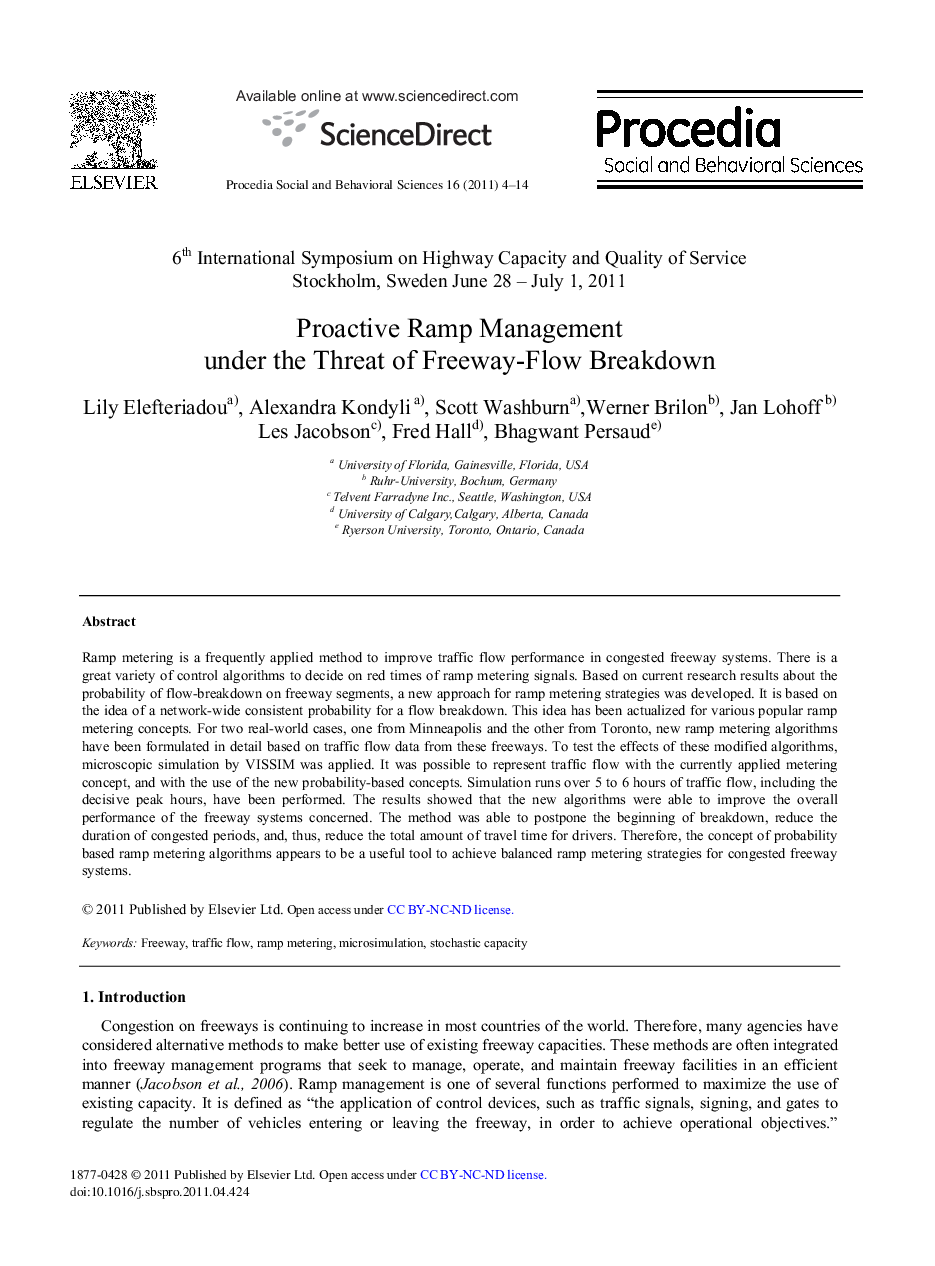| Article ID | Journal | Published Year | Pages | File Type |
|---|---|---|---|---|
| 1124135 | Procedia - Social and Behavioral Sciences | 2011 | 11 Pages |
Ramp metering is a frequently applied method to improve traffic flow performance in congested freeway systems. There is a great variety of control algorithms to decide on red times of ramp metering signals. Based on current research results about the probability of flow-breakdown on freeway segments, a new approach for ramp metering strategies was developed. It is based on the idea of a network-wide consistent probability for a flow breakdown. This idea has been actualized for various popular ramp metering concepts. For two real-world cases, one from Minneapolis and the other from Toronto, new ramp metering algorithms have been formulated in detail based on traffic flow data from these freeways. To test the effects of these modified algorithms, microscopic simulation by VISSIM was applied. It was possible to represent traffic flow with the currently applied metering concept, and with the use of the new probability-based concepts. Simulation runs over 5 to 6 hours of traffic flow, including the decisive peak hours, have been performed. The results showed that the new algorithms were able to improve the overall performance of the freeway systems concerned. The method was able to postpone the beginning of breakdown, reduce the duration of congested periods, and, thus, reduce the total amount of travel time for drivers. Therefore, the concept of probability based ramp metering algorithms appears to be a useful tool to achieve balanced ramp metering strategies for congested freeway systems.
